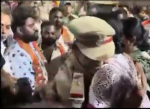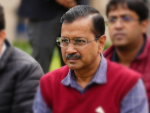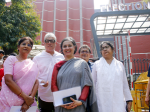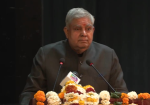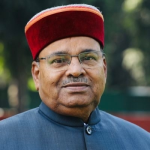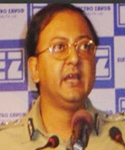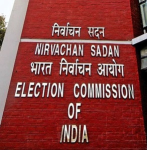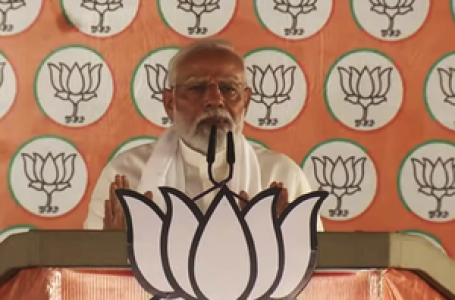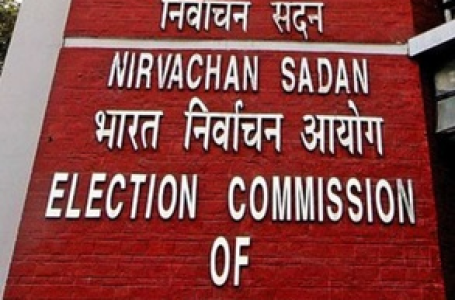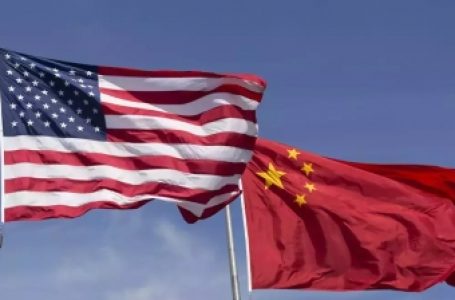By Dr D.K. Giri
Aug 4, 2019
New Delhi: Subrahmanyam Jaishankar has been the ‘most surprise’ choice of our Prime Minister, as the Foreign Minister, in Modi 2:0 Cabinet. By now, we all know that Modi is capable of springing surprises every now and then, in policy making, government formation, and appointment to other key positions and so on. No problem there. But if some surprises militate against the fundamental organising principle of democracy, we may have to worry about its long-term consequences.
Let me share the source of my discomfiture and apprehension that prompted me to do this piece. It was the remark of a senior politician, who rose from grassroots to be an MLA for 20- odd years, a Cabinet Minister in the State for 15 plus years, Chief Minister for a year and Member of Parliament now in his fourth term. He made a serious point on democracy, in passing, as I assist him with research support in his parliamentary works. He said, “Dr. Giri, you, as an intellectual could be my advisor, a sounding-board, you cannot be my leader, as you are not elected by the people”. I grudged a bit as my instant but quiet reaction was that merit may not get due recognition if election becomes the sole criterion.
This is exactly what is being cited and commended: ‘Modi chooses merit over other considerations’ in the appointment of Dr. Jaishankar, the former Foreign Secretary. But, as a student of politics, I saw the veteran politician’s point, and he was spot on, that in democracy what comes first is people’s mandate. It is another matter that due to various practical distortions and structural anomalies in our electoral system, not-so-desirable candidates get elected.
Surely, we cannot throw the baby (democratic norms) with the bath water (unwanted winners). Can we? Our leaders seem to be doing the same. As they do not find talented leaders, they are drafting them from other professions, beyond the electoral (democratic) process. The late Prime Minister Rajiv Gandhi started this process, and the present Prime Minister is copying him.
Rajiv Gandhi brought in quite a few individuals and made them Ministers. Prominent among them is Dr. Manmohan Singh, who went to become the Prime Minister for 10 years, two consecutive terms, without winning any election. He is, indubitably, one of the most qualified persons, was the most educated Prime Ministers of the world. But look at his leadership as the PM, it leaves a lot to desire. He was “an accidental Prime Minister”, said his media advisor, in a book, and many commentators regarded him as a lame-duck Prime Minister.
Is the present situation or appointment comparable? Will Jaishankar prove to be a weakling of the Prime Minister? As a civil servant he was a policy wonk, an astute thinker, a talented diplomat. He has had a great personal equation with Modi. When he was an ambassador in China, Modi visited the country to apprise himself of Chinese model of growth and development. Modi was in USA as the Prime Minister after his visa ban, and Jaishankar was then the Ambassador in Washington DC.
Then he was brought as a Foreign Secretary by Modi in supersession of his senior in the Foreign Service. He served ably for three years including an extension of one year. After his retirement, he was heading the global affairs department of Tata until Modi won a bigger victory in Parliament elections and called Jaishankar back as the Minister for External Affairs. Observers point out that it has not happened for the first time. K. Natwar Singh was MoS in the same Ministry. He too was a career diplomat. Anyway, Natwar Singh’s stint as a Minister was not so commendable; he left the party afterwards and spilled the beans about the 1st family of the Congress, namely Sonia Gandhi. Not a happy ending to his political career.
At any rate, why do I pick Jaishankar when Modi has five Ministers in the Cabinet with bureaucratic background? Jaishankar comes from my alma mater, in-news Jawaharlal Nehru University; from an able bureaucratic family; his father was an IAS officer with deep knowledge of defence matters, headed Indian Institute of Defence Studies and Analysis for 13 years or so. While I wish Jaishankar well in his new position and tasks, I am taking him as a case in point for two reasons.
First, he is individually and professionally highly competent, and second, foreign affairs is considered to be ‘high politics’, too sophisticated to be comprehended by traditional politicians. These two reasons would perhaps have prompted Modi to choose Jaishankar to be the Minister of External Affairs, and thereby a member of the Cabinet Committee on Security (CCS).
Again these two points are contentious, seen from a political-democratic perspective. When a Minister is chosen by a party-in-government, the individual should have embraced the ethos, ideology, perspectives and policies of the party. This is a simple, universally accepted political parameter, which a politically astute Prime Minister Modi should not miss. Having said that and disappointed to see that, in competitive electoral, majoritarian politics, the numbers matter.
So even BJP, ‘a party with a difference’ is accommodating anybody into the party regardless of any party political scruples. This is ‘compulsion of numbers’, as Manmohan Singh reckoned with ‘coalition compulsion’ in compromising with things that he perhaps did not want to. Without such political grooming and grounding, even a fine diplomat like Jaishankar may dither.
Let me illustrate this point. In Raisina Dialogue in 2018, the former US General David Petraeus said, “India has to decide; India has to take side, in the new world order shaped by rising China and resurgent Russia”. Jaishankar is said to have replied, “India indeed must take a side — its own one”. Here is the moot point. Is this BJP-led government’s position? Such a stand reminds one of non-alignment, neutrality, etc.
From an anti-colonialism, then non-alignment, then engagement, and now to taking positions,
India’s foreign policy has evolved. Jaishankar has worked with the BJP-led governments for 10 years and 30 years with non-BJP (mostly Congress) governments.
The other reason is the so-called high politics of foreign affairs, what are the objectives of our foreign policy. They are to promote our national interest, ensure our security, safeguard our sovereignty, contribute to our growth and prosperity, enhance our stature, influence, and role in the comity of nations. These are aspirations that can be articulated by those who have lived through conditions obtaining across the country. These are experiential wisdom and aspirations which can be gained only from the ground where democracy rests. One wonders, if bureaucrats who leaf through files and spend all their time in conferences and meetings can imbibe these people’s aspirations. I would like to be wrong. But am I?—INFA



